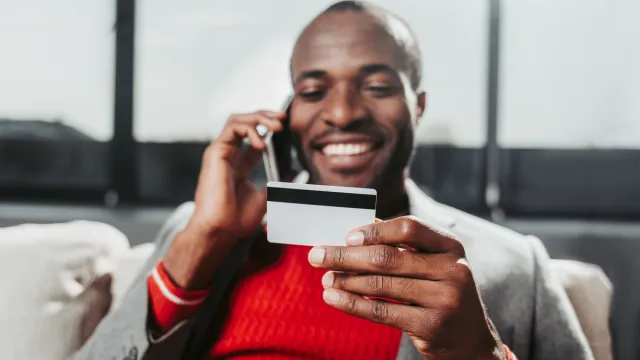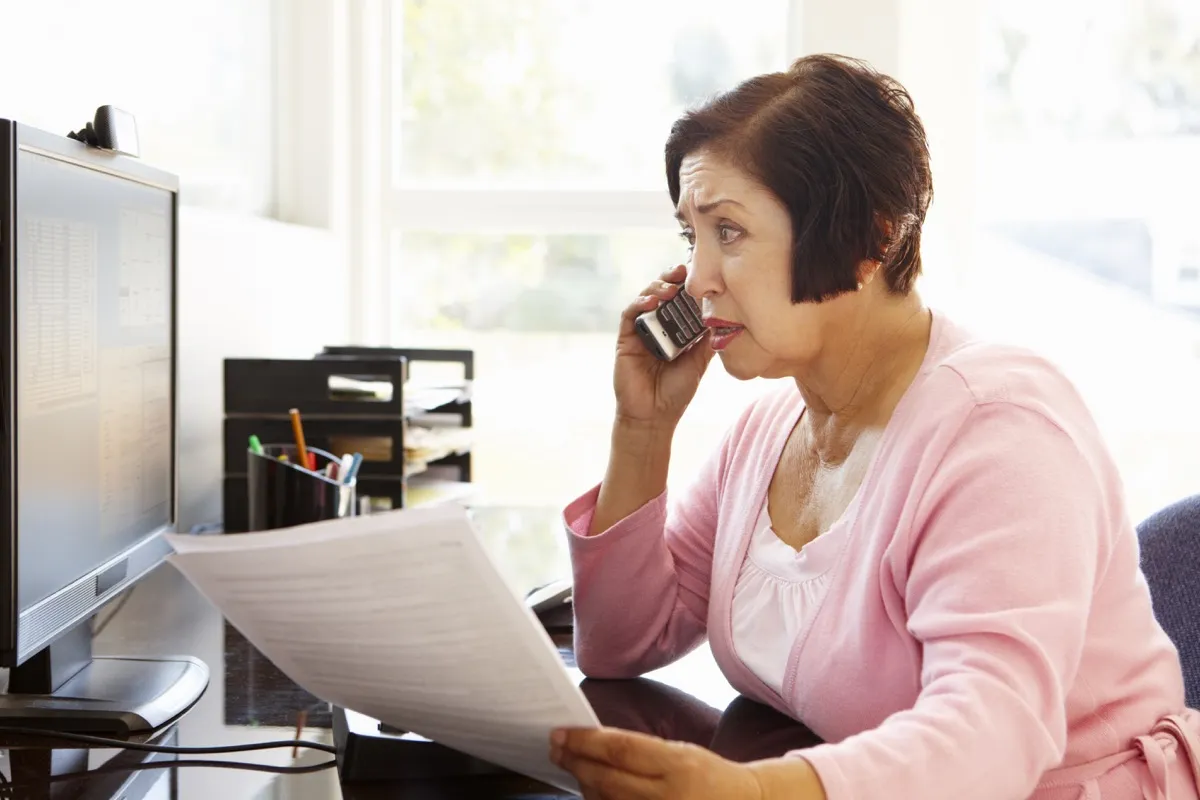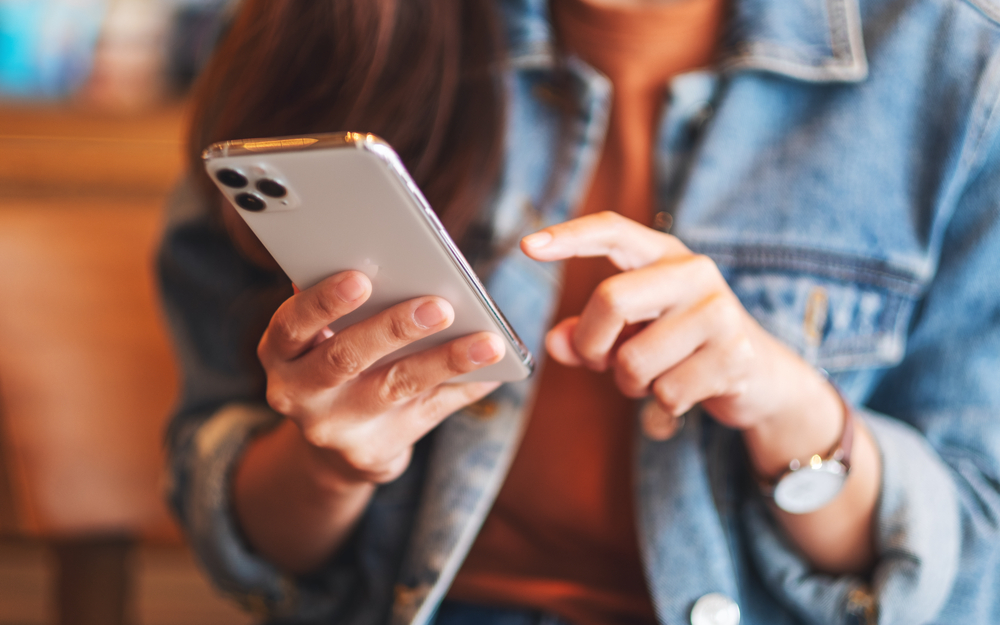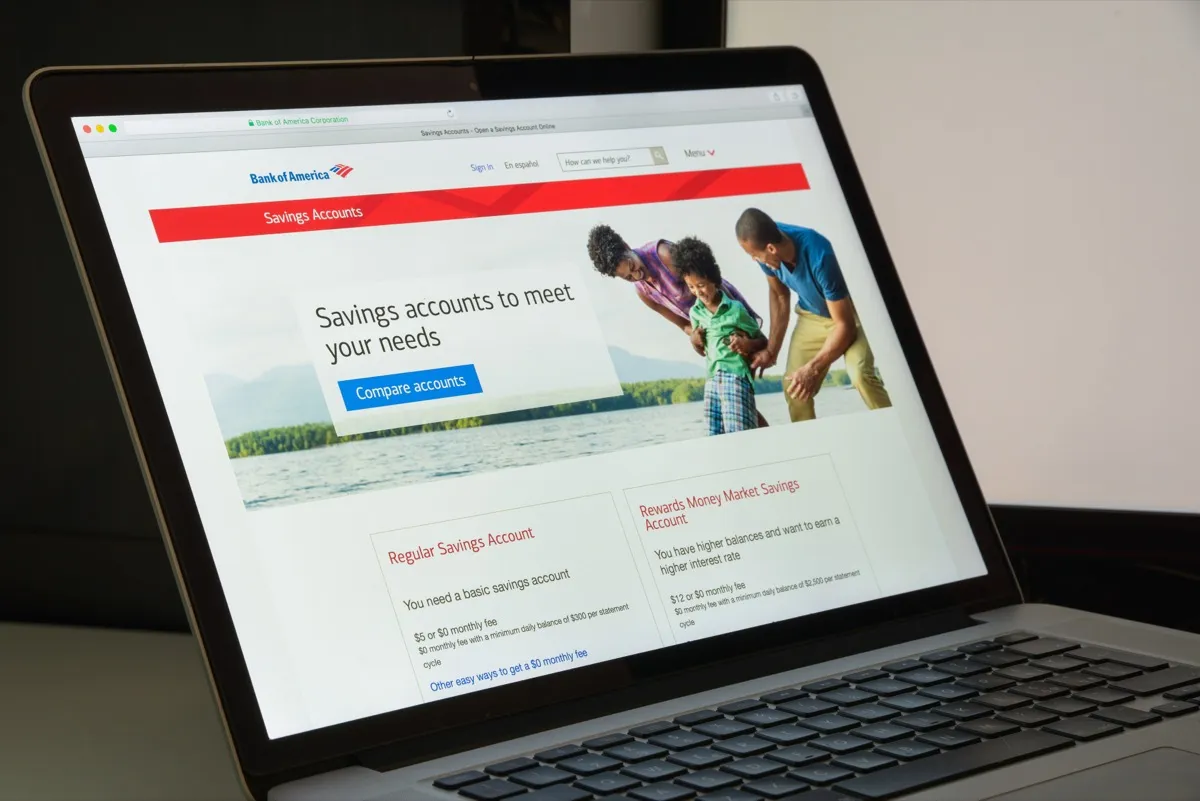If You Get This Call From Bank of America, Hang Up Immediately
Responding to this call could put your hard-earned cash at risk.

Losing money is never a good feeling, but it happens to the best of us, whether you have an expensive bill from months earlier deduct funds out of nowhere or you accidentally spent more than you had and face costly overdraft fees. Luckily, bank-issued protections, like text notifications and phone calls about expensive charges and fraud alerts, can provide peace of mind to customers. Unfortunately, a new scam claiming to offer that kind of protection against fraud is targeting customers of Bank of America. If you're a customer of that bank, read on to find out what you should be listening for.
RELATED: If You Hear This When You Answer the Phone, Hang Up Immediately.
A new phone scam is targeting Bank of America customers via text and phone calls.

Bank of America customers have recently been targeted in a new phone scam, local news outlet ABC 7 reports. The fraud begins with customers receiving a text that appears to be from Bank of America, which asks them to verify a recent purchase. When customers deny having made the purchase, they receive a phone call from someone claiming to be a representative for Bank of America, who asks them questions related to their account. Thanks to the perpetrators' caller ID spoofing, the call appears to be coming from a legitimate Bank of America phone number, which makes it easy to fall for.
For the latest safety news delivered straight to your inbox, sign up for our daily newsletter.
The theft is being perpetrated through the Zelle app.

After callers provide their information to the alleged "Bank of America" representative, they're told that a large sum of money—frequently $3,500—is being sent to Zelle, a mobile payment app, and that the transaction is still pending, thus enabling the customer to reverse it.
To correct the fraud, Bank of America customers are then told to send that exact amount of money back to themselves through the Zelle app. Unfortunately, the scammers have coopted the customers' profiles with the information they provided, meaning the cash goes to them instead.
Bank of America notes that no legitimate representative would ask for passcodes or authentication codes over the phone.

Ensuring that you know who you're sending money to before conducting any online transactions is always a good rule of thumb, but Bank of America also has another recommendation for anyone who receives a call that's supposedly from the bank.
"We remind clients that they should not provide confidential account information to unidentified individuals. Bank of America and other legitimate companies would not ask for sensitive account information, such as passcodes or authentication codes," the bank said in a statement to ABC 7. "We have a number of measures in place to proactively warn clients about scams, and we periodically reach out to customers with information about how to stay safe and avoid scams."
You should always try to verify that a call did in fact come from your bank before speaking to them further.

In general, if you happen to receive a call that seems to be from your bank, the safest bet is to hang up and look up the bank's number online. Call that number and ask if the call you've just received is legitimate or not before providing any of your information.
In the case of Bank of America and this particular scam, you can also visit the bank's security center to report suspicious activity on your account, phishing scams, and identity theft.
RELATED: If You Get an Email From the IRS With These 3 Words, Don't Click on It.





















